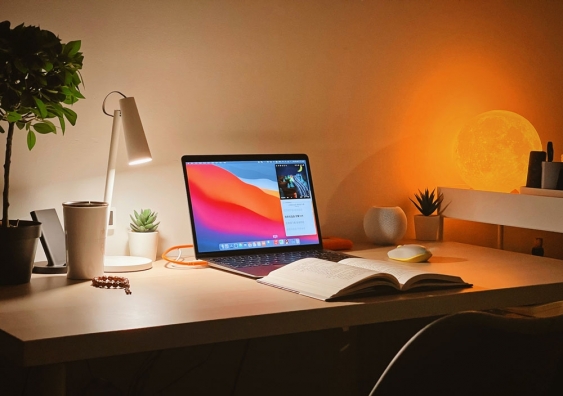How can families help kids better manage Year 12 exam stress?
Key to reduced anxiety and exam success is creating a study environment where students can thrive, says a UNSW Sydney educational psychology researcher.
Key to reduced anxiety and exam success is creating a study environment where students can thrive, says a UNSW Sydney educational psychology researcher.

Final Year 12 exams are a very stressful time for students, families and teachers alike. While feelings of anxiety and other intense emotions are normal, the skills and strategies to manage these situations are vital to getting families through this busy, difficult time.
Scientia Associate Professor Rebecca Collie, School of Education, UNSW Arts, Design & Architecture, is an educational psychology researcher in teacher and student motivation and wellbeing. She says creating a study environment where students can thrive is key to their success.
Preparation is important. First, make sure your child has a quiet and neat space to study without distraction, says A/Prof. Collie.
“Encouraging your child to create a study schedule that works for them is the next step. For some, 50-minute blocks with 10-minute breaks work. For others, it might be 25-minute blocks with five-minute breaks.”
A/Prof. Collie says to remember to revisit the schedule with regular check-ins with your child and discuss whether it’s working.
“Ask how things are going and if anything isn’t working out. It’s ok to change the schedule until you find what works best.”
Once a dedicated study space and study schedule are underway, A/Prof. Collie has some tips to help students study.

Ensuring tidy, dedicated study space is key to success. Photo: Iewek Gnos/Unsplash.
Ample research shows that physical and mental wellbeing is vital to student success, says A/Prof. Collie.
“Sleep is required for the brain to learn effectively,” she says. “Given this, a good night’s rest should be made a priority.”
Encourage your child to maintain social connections and a sense of belonging even during the busy study times.
A/Prof. Collie also emphasises the importance of breaks from study. Productive breaks could include going for a walk, socialising or even playing a video game if that’s what your child enjoys.
Read more: Instagram can make teens feel bad about their body, but parents can help. Here's how
Every student is different. Some will want to focus on grades, while others will be less inclined to.
“Overall, it's important to remember that Year 12 is just one year and hold this in perspective,” says A/Prof. Collie. “The end-of-year exams isn’t the only entry into university or whatever a student wants to do next. There are many alternative pathways to get where they want to go.
A top-down approach that dictates a student’s time and schedule is likely to be less effective in terms of achieving success and supporting students’ well-being.
“We know from research that generally it can be stressful for students when parents or caregivers are too inflexible,” says A/Prof. Collie.
“Instead, parents can let their child have a say by figuring what schedule and study routine works best for them.”
A/Prof. Collie’s research also shows that when parents use supportive strategies and take time to listen to their child’s perspective and provide rationales for why certain decisions are made, this contributes to greater motivation, engagement and achievement.
Read more: Should I give my teen alcohol? Just a sip, the whole can, or none at all?